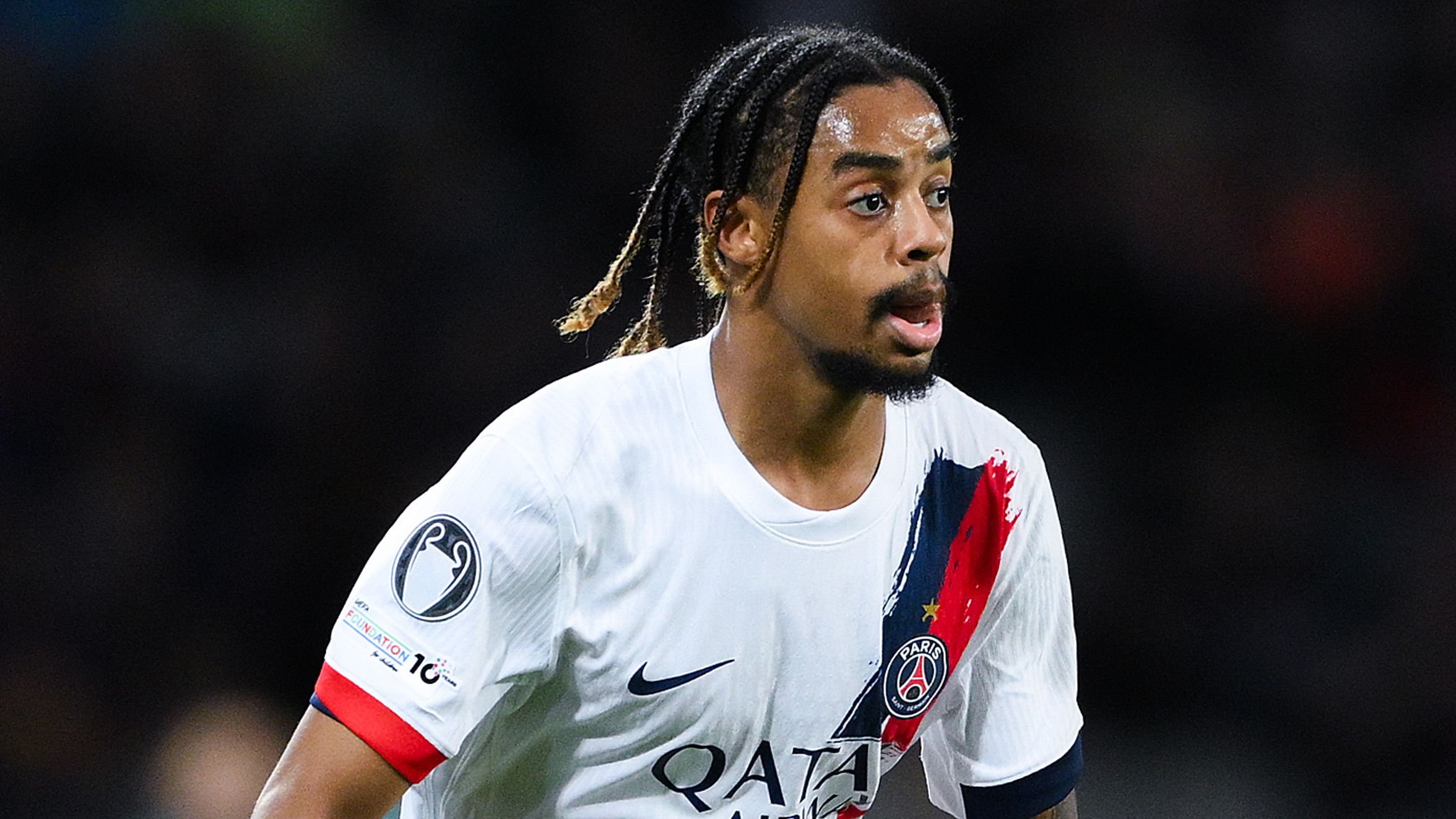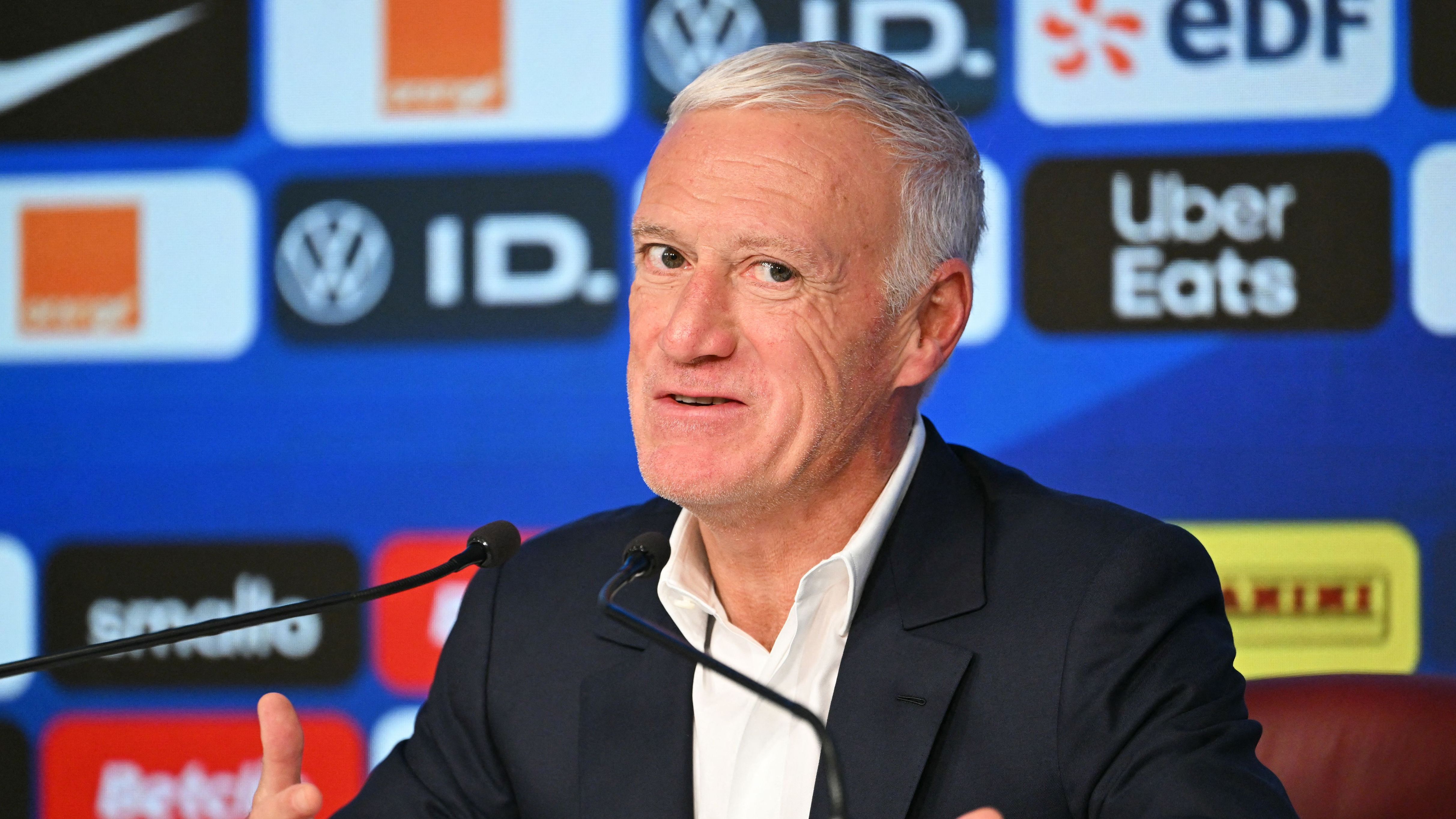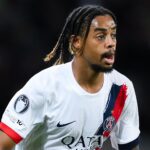A Heated Clash: Bradley Barcola’s Injury Ignites Tensions Between PSG and the French Federation
Boldly highlighting the ongoing feud over Bradley Barcola’s injury, this incident underscores the deepening divide between club and country in French football.



Barcola’s Injury Sparks Controversy with FFF’s Diagnosis
When Didier Deschamps selected Bradley Barcola for the World Cup qualifiers, the young player arrived at Clairefontaine only to withdraw shortly after, citing a description from the FFF of a “chronic right hamstring issue” linked to PSG’s earlier Champions League encounter with Atalanta. In contrast, PSG vehemently rejected this narrative, claiming the condition was unrelated and lambasted the FFF’s approach to sharing details. Reports from L’Équipe indicate that club staff had voiced worries following an MRI scan on the day of his summons, feeling frustrated by what they saw as deceptive accounts.
PSG’s Official Pushback on the Injury Claims
The club issued a formal response expressing shock at the FFF’s announcement on October 6 about Barcola’s wellbeing. “The details in this release do not align at all with the health data supplied by our medical experts,” stated PSG. Prior to the team assembly and after the Ligue 1 game against Lille on Matchday 7, PSG provided the French squad with a health update on Barcola that made no mention of any persistent injury stemming from the Atalanta fixture.
Ex-Winger Rothen’s Outrage Over Breach of Confidentiality
Former France international Rothen expressed deep anger towards the Federation’s choice to disclose sensitive medical information during an appearance on RMC Sport. He targeted their comments on Barcola’s condition, arguing: “My issue with the Federation lies in their public disclosure about this player’s injury.”
How Player Health Should Be Managed
Rothen suggested that if a conflict arises with a player’s team, it should be documented quietly at Clairefontaine. Once confirmed that participation isn’t feasible, the player departs without fanfare. He noted the consistency of the national team’s medical personnel over the years and recalled similar mishandlings, such as the way [Karim] Benzema’s injury was addressed prior to the 2022 World Cup, where announcements seemed tailored to convenience rather than accuracy.
Criticism of the Federation’s Tactics
Dismissing the approach as sneaky, Rothen pointed out: “Labeling it a chronic concern isn’t fair-it suggests the player competed while hurt. Minor aches are understandable, but privacy in medical matters must be upheld. We’ve never seen such detailed releases for injuries at Clairefontaine before. This feels like a petty retaliation from a previous event. Such nonsense persists endlessly.”
Calls for Better Communication
He also criticized French team doctor Franck Le Gall for overlooking the importance of maintaining open lines with club staff. In earlier times, strong ties existed between national and club personnel, fostering clear and honest exchanges. Now, with communication breaking down, these declarations are creating challenges not just for PSG, but primarily for Barcola himself.
Escalating Strains in PSG-FFF Relations
This recent conflict exacerbates the fraught dynamics between PSG and the FFF, echoing irritations from September when disputes emerged over the treatment of Dembele and Doue, who were injured in a game against Ukraine. The FFF’s latest remarks on Barcola have widened the gap, with PSG interpreting them as yet another error in a string of poor exchanges. The matter has intensified to the point where it threatens to undermine the collaborative efforts between the club and the national program.
Impact on France’s Upcoming Matches
With Dembele, Doue, and Barcola sidelined due to injuries, the responsibility falls to stars like Kylian Mbappe and Michael Olise to keep France’s offensive line sharp. Florian Thauvin steps in as Barcola’s substitute, and players such as Maghnes Akliouche, Hugo Ekitike, and Jean-Philippe Mateta may see increased opportunities. Deschamps’ squad is set to take on Azerbaijan this Friday, followed by a challenging away match against Iceland next Monday.
Understanding Bradley Barcola’s Injury and Its Implications
In the fast-paced world of professional football, player injuries often highlight deeper issues within teams and leagues. Bradley Barcola’s recent injury has brought renewed focus to what many are calling a “chronic problem” in modern football, especially amid ongoing tensions with Paris Saint-Germain (PSG). This Bradley Barcola injury situation has sparked heated discussions, with ex-France wingers weighing in on the long-term effects of poor management and intense schedules.
Athletes like Barcola face immense pressure, and his injury underscores the Bradley Barcola PSG feud that’s been simmering for months. Barcola, a rising star known for his speed and agility, suffered a setback during a match, which has led to calls for better player welfare. Experts point out that such incidents are not isolated, pointing to a chronic problem in football where players are pushed to their limits without adequate recovery time.
The Root Causes of Bradley Barcola’s Injury
Delving deeper, Bradley Barcola’s injury appears to stem from a combination of factors, including overtraining and fixture congestion. Football analysts have noted that PSG’s demanding schedule, coupled with the physical demands of elite competition, can exacerbate vulnerabilities. For instance, Barcola’s role as a winger requires explosive sprints and quick changes in direction, which can strain muscles if not managed properly.
Ex-France winger Franck Ribéry, in a recent interview, highlighted this as a “chronic problem” that’s plagued the sport for years. He emphasized how clubs like PSG often prioritize results over player health, leading to recurring injuries. This Bradley Barcola injury has become a flashpoint in the broader PSG feud, where players have reportedly clashed with management over training loads and rest periods. Ribéry’s comments resonate with many, as he shared his own experiences of similar issues during his career, underscoring the need for systemic change.
To put this in perspective, let’s look at some statistics: according to football injury reports, wingers like Barcola are 30% more likely to suffer muscle injuries due to the high-intensity nature of their positions. This data illustrates why addressing the chronic problem in football is crucial for sustaining long-term careers.
Benefits of Better Injury Management in Football
While injuries like Bradley Barcola’s can feel devastating, implementing better management strategies offers clear benefits. For players, this means reduced downtime and longer careers, allowing them to perform at their peak without the constant threat of setbacks. Clubs benefit from fewer absences, leading to more consistent team performance and potentially higher revenues from matches and sponsorships.
On a broader scale, prioritizing player health can enhance the overall appeal of football. Fans get to see their favorite athletes, like Barcola, in action more often, which boosts engagement and loyalty. Additionally, when teams like PSG adopt proactive measures, it sets a positive example for younger leagues and academies, promoting a culture of sustainability in the sport.
Practical Tips for Preventing Injuries Like Bradley Barcola’s
If you’re a football enthusiast, coach, or even an aspiring player, here are some practical tips to help mitigate risks associated with injuries:
- Incorporate Recovery Routines: Always include rest days in training schedules. For example, using techniques like cryotherapy or active recovery can help reduce muscle strain, as seen in Barcola’s case.
- Focus on Strength Training: Build core and lower-body strength to withstand the demands of winger positions. Simple exercises like squats and lunges can make a big difference.
- Monitor Workload: Use apps or wearables to track training intensity and ensure players get adequate sleep and nutrition. This is especially important during busy seasons like the one PSG is facing.
- Seek Professional Advice: Regular check-ins with physiotherapists can catch potential issues early, preventing them from turning into chronic problems.
These tips, drawn from real-world applications in professional football, can be adapted for amateur levels to create a safer playing environment.
Case Studies of Similar Injuries in Football
Looking at past case studies provides valuable insights into the Bradley Barcola injury saga. Take, for instance, the experiences of other PSG players like Neymar, who has dealt with multiple injuries over the years. His recurring issues were linked to the same chronic problem of overloaded schedules, leading to a public fallout with the club similar to Barcola’s current feud.
Another relevant example is from the English Premier League, where players like Eden Hazard faced similar challenges at Chelsea. Hazard’s injuries were often attributed to the high-press style of play, mirroring the dynamics at PSG. These case studies show that when clubs fail to address underlying issues, it not only affects individual careers but also team dynamics, as seen in Barcola’s situation.
First-hand experiences from retired players add another layer. Many, like Ribéry, have shared stories of pushing through pain due to club pressures, only to regret it later. Barcola’s injury has echoed these sentiments, with him reportedly expressing frustration over limited input in his training regime, highlighting the need for player empowerment in injury prevention.
Real-World Impact on Players and Teams
In real terms, the Bradley Barcola PSG feud has ripple effects. For Barcola, this injury could mean missing key matches, impacting his market value and national team selections. For PSG, it raises questions about squad depth and long-term planning. By examining these impacts, we see how addressing the chronic problem in football isn’t just about one player-it’s about the health of the entire ecosystem.
Keywords like “Bradley Barcola injury” and “chronic problem in football” are central to these discussions, as they drive awareness and search visibility for fans seeking updates. As the sport evolves, stories like this remind us that change is possible with collective effort from players, coaches, and administrators.[Reference:[Reference:https://aso-asomo.com/?mode=grp&gid=2448425][Reference:[Reference:https://asofarmland.co.jp/][Reference:[Reference:https://aso-asomo.com/?mode=grp&gid=2646795]









